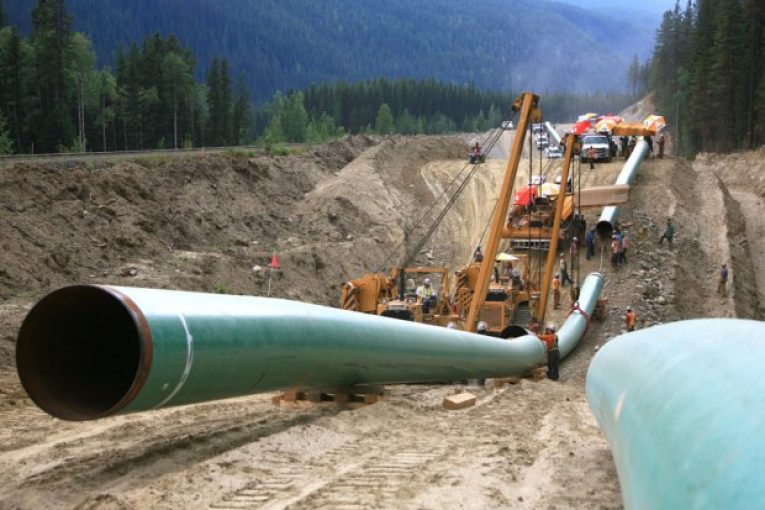
The National Energy Board is expected to announce Thursday details of hearings to narrow down the route of the Trans Mountain pipeline expansion, even as construction is set to start in September in segments where regulatory requirements have been met.
Meanwhile, the NEB said in a letter late Wednesday to project proponent Kinder Morgan Canada that it has now satisfied all conditions to start construction at its Westridge Marine Terminal in Burnaby.
“All condition filings and related correspondence were assessed with rigor to determine whether Trans Mountain had complied with the condition, and whether the filed information is acceptable within the context of regulatory requirements and standards, best practices, professional judgement and, the goals the condition sought to achieve. In these filings, the Board notes Trans Mountain provided additional detailed mitigation and commitments to address outstanding Project issues,” the NEB said in the letter.
“Public safety and the protection of the environment is of paramount importance to the NEB, and will hold Trans Mountain accountable for its performance during the construction and operation of this project, including full compliance with all regulatory requirements and commitments,” the regulator said to the company.
Last week, the NEB warned Kinder Morgan Canada that it could not start construction at Westridge because only 27 out of 49 conditions had been met.
“We’re confident that we’ll meet the additional compliance requirements so that we can begin construction in September,” the company said in an emailed statement.
Different segments of the Alberta-to-Burnaby project will have different construction starts, the company said.
The detailed route hearings are expected to begin in the fall and take several months, the NEB said in a letter last week to Jim Carr, the federal natural resources minister.
The NEB received 452 statements of opposition related to the proposed route, including five from indigenous groups and 121 from landowners.
The plan is unfolding in the face of outrage from British Columbia’s new NDP government, which has vowed to use all available tools to stop the pipeline expansion, and threats of large demonstrations from environmental organizations and indigenous communities. Andrew Weaver, leader of the B.C. Greens, whose support is needed by the NDP to stay in power, has promised: “Trans Mountain will never be built.”
Trans Mountain applied in 2012 to twin the existing 1,147-kilometre Trans Mountain pipeline system and provide a new market for Alberta oil in Asia. The project includes new and modified pump stations and tanks, and additional tanker loading facilities at the Westridge terminal. The project would increase Trans Mountain’s shipping capacity from 300,000 barrels a day to 890,000. The majority of the new pipeline would be adjacent to the existing pipeline or along existing corridors. Kinder Morgan expects to complete the expansion in 2019.
Kinder Morgan filed a security plan with the NEB in May to protect its activities.
“The company needs to have an adequate construction security program in place, and is responsible in implementing that program,” said NEB official James Stevenson. “Security is clearly within the NEB’s mandate, and our role is to have regulatory oversight on the company’s program to ensure that it is meeting the NEB’s requirements.”
Meanwhile, the project faces a parallel legal hurdle — a judicial review by the Federal Court of Appeal of last November’s federal cabinet approval, which came with 157 conditions. Hearings are scheduled to get under way in Vancouver Oct. 2 to Oct. 13.
Several First Nations and municipalities have joined the legal challenge. The court ruled Tuesday that it would also allow the B.C. government to participate as an intervenor.
However, because the province applied late and missed the initial deadline of April 13, it will have to meet the same Sept. 1 deadline to submit a 15-page document of facts that the Alberta government, which supports the project, had months to prepare. The court also prohibited B.C. from introducing new issues or evidence and ruled the province must pay $7,500 to Trans Mountain for having to prepare a late response to the arguments.
B.C.’s Environment Minister George Heyman said his government welcomes the decision.
“We will continue to defend B.C.’s coast and the economic and environmental interests that are so important to British Columbians,” he said in a news release.
Last month, Heyman said only three of eight environmental management plans required by the province have been accepted and that it’s unlikely those remaining will get approval before work was to start because the company didn’t adequately consult First Nations.
You can read more of the news on source
